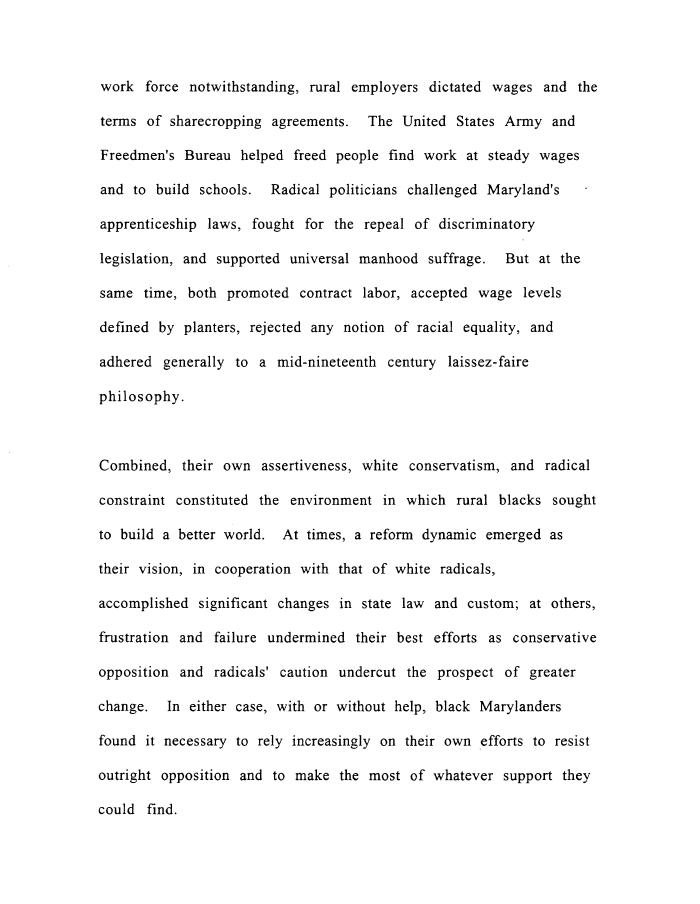 |
||||
|
TASK FORCE TO STUDY THE HISTORY AND LEGACY OF SLAVERY IN MARYLAND (Final Report) 1999/12/31 MdHR 991422 MdHR 991422, Image No: 294 Print image (40K) |
 |
||||
|
TASK FORCE TO STUDY THE HISTORY AND LEGACY OF SLAVERY IN MARYLAND (Final Report) 1999/12/31 MdHR 991422 MdHR 991422, Image No: 294 Print image (40K) |
| work force notwithstanding, rural employers dictated wages and the terms of sharecropping agreements. The United States Army and Freedmen's Bureau helped freed people find work at steady wages and to build schools. Radical politicians challenged Maryland's apprenticeship laws, fought for the repeal of discriminatory legislation, and supported universal manhood suffrage. But at the same time, both promoted contract labor, accepted wage levels defined by planters, rejected any notion of racial equality, and adhered generally to a mid-nineteenth century laissez-faire philosophy. Combined, their own assertiveness, white conservatism, and radical constraint constituted the environment in which rural blacks sought to build a better world. At times, a reform dynamic emerged as their vision, in cooperation with that of white radicals, accomplished significant changes in state law and custom; at others, frustration and failure undermined their best efforts as conservative opposition and radicals' caution undercut the prospect of greater change. In either case, with or without help, black Marylanders found it necessary to rely increasingly on their own efforts to resist outright opposition and to make the most of whatever support they could find. |